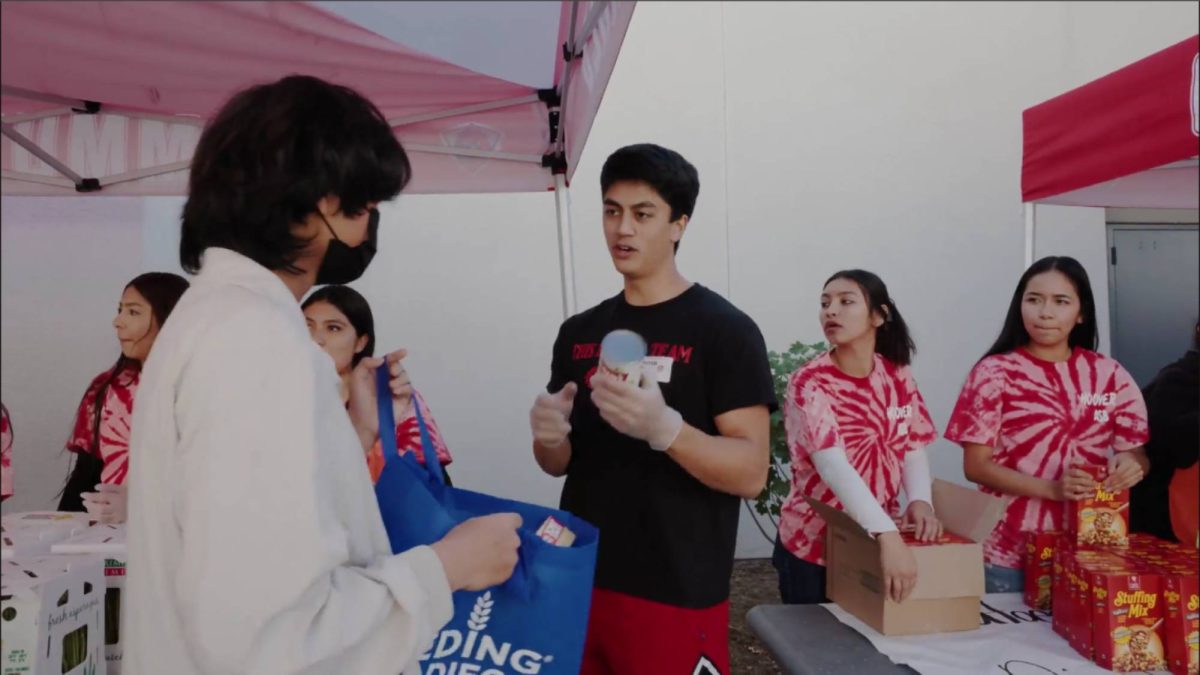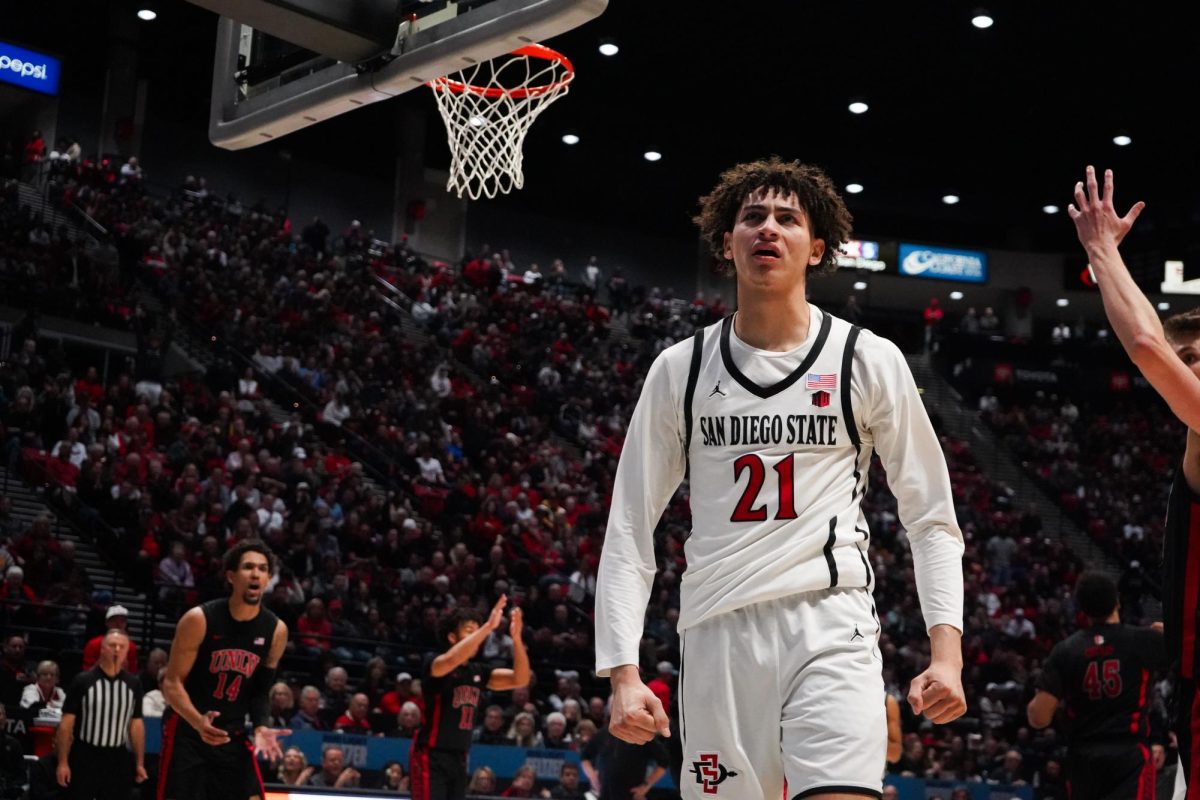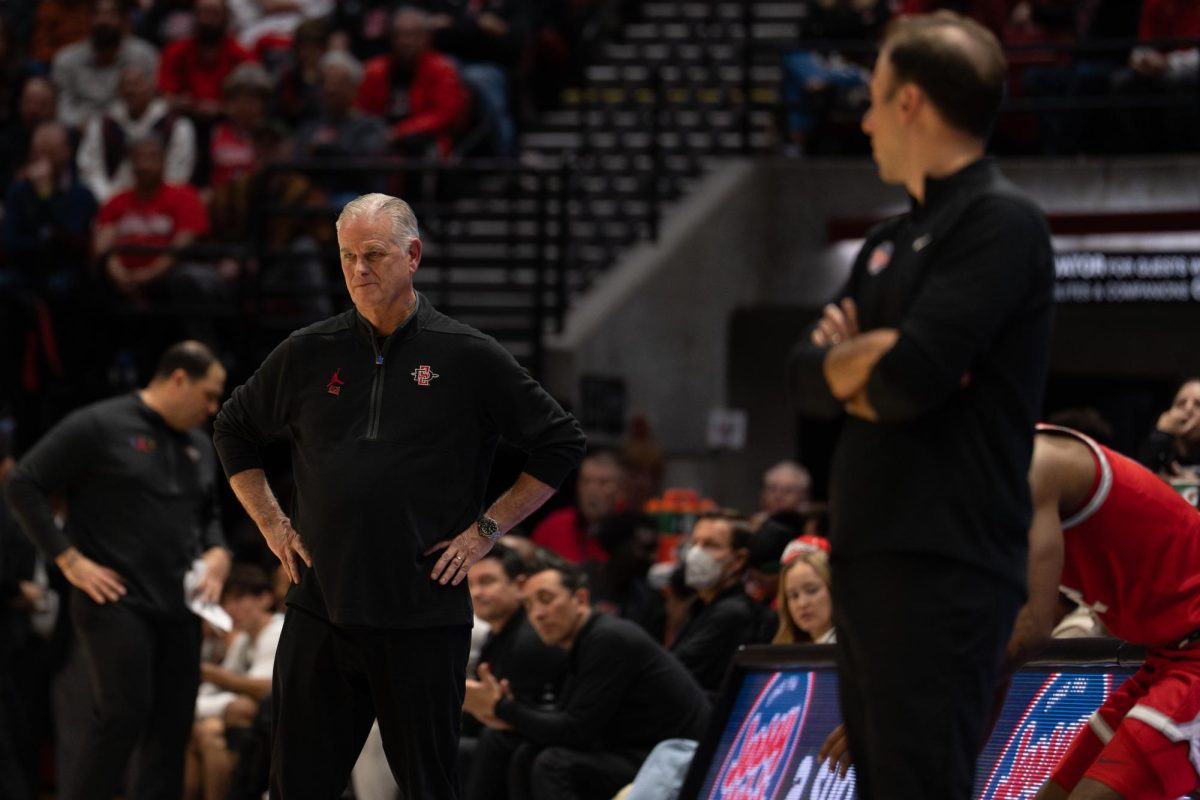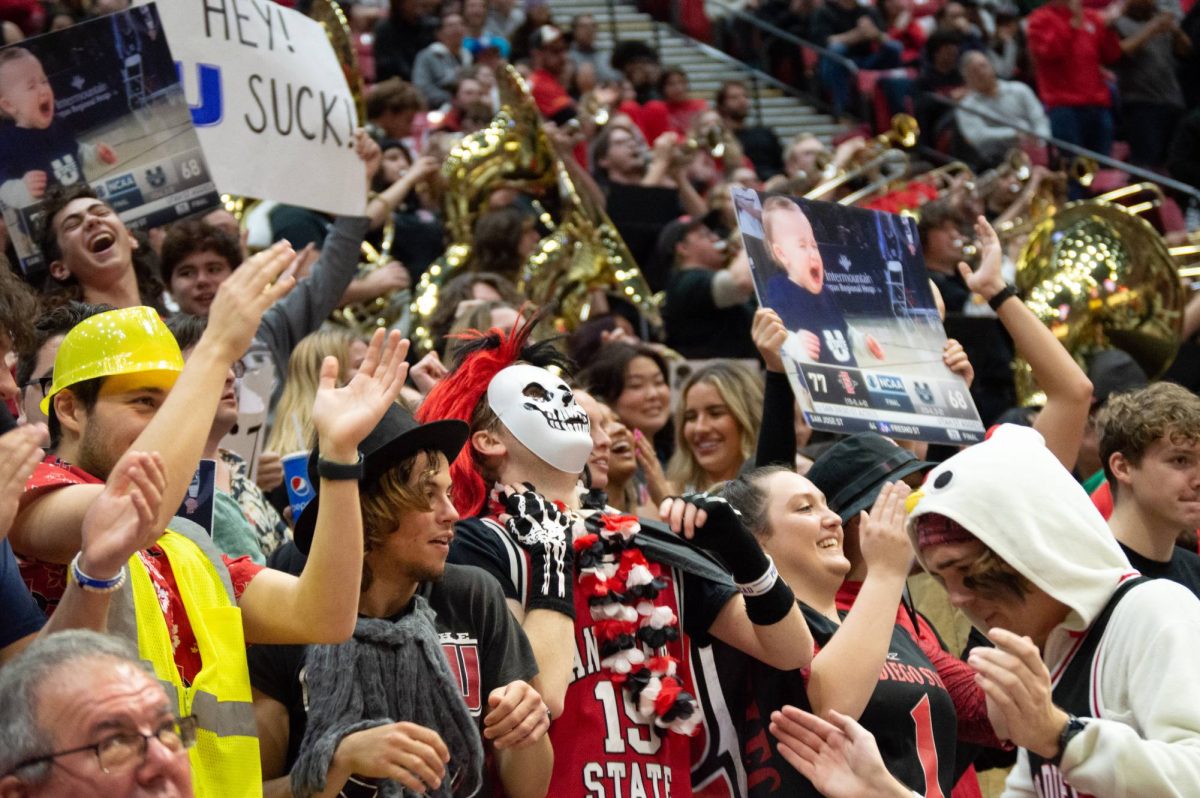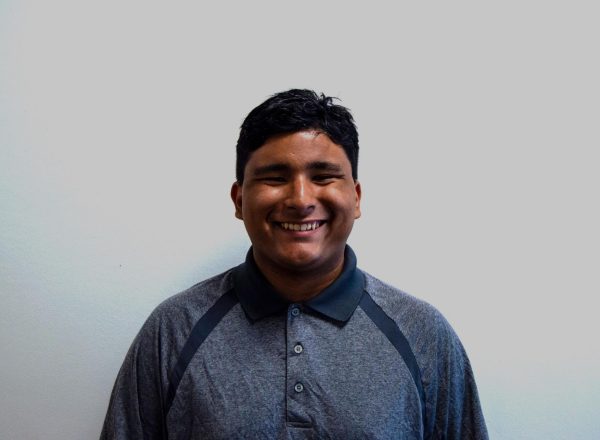Since 2007, Feeding San Diego has provided more than 400 million meals to community members in need, solidifying its role as the region’s leading food bank. Recognizing this critical mission, the San Diego State University men’s basketball team recently pledged donations to the organization, using their Name, Image and Likeness (NIL) earnings to make an impact beyond the court.
Working closely with the San Diego State Aztecs’ NIL collective, Mesa Foundation, several players contributed their own NIL funds to Feeding San Diego. While the total amount raised remains undisclosed, the players emphasized the personal significance of their contributions, underscoring the importance of using NIL opportunities for community benefit.
Giving Back to the Community
For SDSU guard Nick Boyd, the initiative holds deep meaning.
“It’s really important to me. Everybody’s holidays aren’t the same. I know for myself, some holidays are tough,” he said. “So to have the opportunity to give back to the community and make an impact on something other than basketball is really important.”
Boyd and his teammates’ dedication to community service extends beyond monetary donations. A recent visit to Hoover High School, where the players assisted with food distribution, provided a firsthand look at the struggles faced by many families.
“Yeah, it opened my eyes. I never really realized the community, what they’re really going through,” he said. “To see it firsthand was important to see how many kids had to pick up groceries, especially during the holidays for their families.”
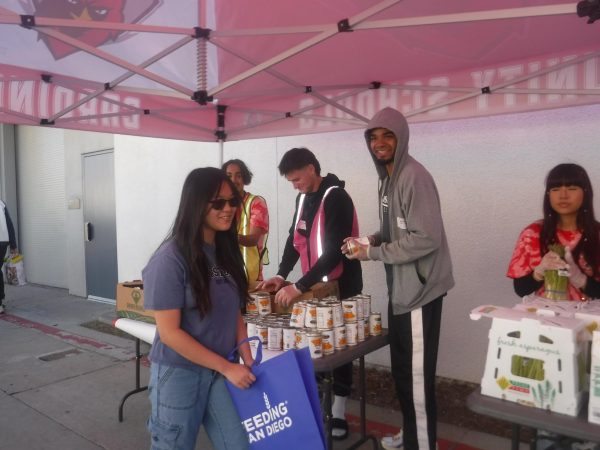
NIL: A Tool for Positive Impact
Boyd also highlighted how NIL opportunities can teach players valuable life lessons.
“It’s definitely valuable if it’s used the proper way. I feel like NIL teaches you a lot of lessons, and it shows you how to take care of your money financially,” he said. “At the same time, having a little bit of extra money to help your family out or do something like we did with Feeding San Diego is important. It shows you how to be grateful and humble.”
For Boyd, using NIL earnings to support others underscores the potential for positive outcomes.
“It just shows a positive to NIL. How you can impact other lives outside of just ourselves,” he said. “Putting the NIL in that light shows the positives, and if it’s used the proper way and for the right reasons, how great it can be for the community and for someone’s family.”
Building Connections Through Service
Guard Kimo Ferrari echoed Boyd’s sentiments, emphasizing the importance of giving back during the holidays.
“Holidays are always the time of giving, and we’re in a pretty fortunate spot here at San Diego State,” he said. “Just everything that’s happened right now with the fires in LA, I mean, you can go back and see what really tough times are, and what pressure is. Sometimes we say we have pressure with big games coming up, but not knowing where your next meal is going to come from—that’s pressure. Anything we can do to alleviate that.”
Ferrari’s familiarity with the local community made the experience even more meaningful.
“I’m a San Diego kid, so I’ve been to Hoover a bunch of times to watch basketball games, to watch baseball games, any kind of sporting event,” he said. “So when you can go back there and see Hoover in a different lens, it means a lot. It definitely impacted me a lot, and it impacted a lot of my teammates too, which led to our decision to give back,”
Leveraging NIL for Greater Good
Ferrari highlighted how SDSU’s approach to NIL demonstrates the program’s commitment to community service.
“Oh yeah, it’s definitely very impactful. I mean, San Diego State is very special with the Mesa Foundation, and we use our NIL in different aspects to give back to the community, which hopefully can spread across different programs across the nation,” he said. “NIL gets a bad rep, but I think we’re doing a great job here of using it for a good purpose, giving back to the community in more ways than one.”
Beyond financial contributions, Ferrari stressed the importance of donating time.
“Money is the big thing, but time, it’s something you can never get back. We always do a great job of using our time to give back to our whole community, whether that’s the Challenged Athletes Foundation we worked with in the summer or going to inner travel sports later in the summer,” he said. “Anything we can do to give back our time means a lot. I’m sure these communities appreciate it a lot, but we appreciate it so much more to get out there, get in touch with the community, and just give back. It’s a joy whenever we can do that, so we have a lot of fun with it.”




